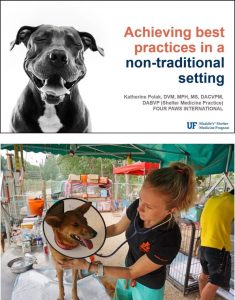Style Guide & Examples
Textbox Examples
The Pressbooks textbox tool allows you to place text and other items within coded frames in order to set it apart from the rest of the text in the body of your book. The color and style of textboxes varies from theme to theme but can and should be customized in the book’s appearance settings for consistency following the chosen color palette.
How to Use Textboxes
To add a textbox to your publication, click on the toggle bar at the top right to show the full formatting toolbar.
Then find the “Textboxes” dropdown menu to make your specific textbox style selection. This will insert an empty textbox into your post. Alternatively, you can highlight your text first, then choose the textbox style from the dropdown menu to see it appear with your text already inside:

Textbox Styles and Uses
Shaded TextBox
Used to highlight text that should be read as a “document” or file such as “Medical Record Notes” or “Diagnostic Test Results” when an image is not used. The title of the document should be centered and bolded.
Medical Record Notes
Day 1
- Litter of 5 puppies brought to shelter
- 6 weeks old
- Examination: healthy
- Modified-live DAPP vaccine injected in left hind leg
- Modified-live Bordetella bronchiseptica vaccine intranasally
- Pyrantel pamoate 1 mL orally
- FrontLine Plus 0-25 lb topically
Quizzes = Exercises
Quizzes are built using H5P to create an interactive practice activity for readers to test their knowledge and comprehension of learning material. Using the “Exercises” textbox that is pre-built into the Pressbook’s theme, the title should always appear as bolded white text reading “Test Your Knowledge” against a dark orange background. The quiz itself is inserted using the H5P plugin into the body (or lightly shaded area) of the textbox.
Test Your Knowledge
EXAMPLES
The “Examples” box is used to call out materials that are directly quoted or referenced from another source.
Association of Shelter Veterinarians
According to the ASV Guidelines:
Videos & Hotspots = Key Takeaways
Use the “Key Takeaways” pre-built Pressbooks textbox to highlight videos to be watched. The body of the box should include a screen capture of the title slide for the presentation. If a biography is provided, this will go below the description of the video along with a photo of the presenter.
This box is also used for interactive hotspots built using H5P.
Watch This

Listen to this presentation Achieving Best Practices in a Non-Traditional Setting by Dr. Katherine Polak, as she explains how to adapt essential standards of care to non-traditional international spay-neuter settings. (27 min)
Dr. Katherine Polak currently serves as the Head of Stray Animal Care – Southeast Asia for Four Paws International, a global charity working to improve the conditions of free-roaming dogs and cats through sterilization programs and to combat the cruel dog and cat meat trade. Dr. Polak completed a residency in Shelter Medicine at the University of Florida Maddie’s Shelter Medicine Program and an internship in Shelter Medicine at Colorado State University. She was one of the first veterinarians to become boarded in the new specialty of Shelter Medicine. Before joining Four Paws, she worked at Soi Dog Foundation in Thailand, where she launched a large-scale sterilization campaign aiming to sterilize 80% of Bangkok’s estimated 640,000 free-roaming dogs and managed a large animal shelter in Phuket. Dr. Polak also helped to create the first ever dog meat-free city in South Korea, developed strategies to combat the dog meat trade in Vietnam and Indonesia, and worked to end the mass poisoning of stray dogs in Yangon, Myanmar.
Learn More = Learning objectives
The “Learning Objectives” textbox has a black header and white background. This will be used at the end of each module for highlighting the “Learn More” features of the book, at the beginning for presenting the Learning Objectives, and/or for actual Key Takeaways (not to be confused with the default label of the box style above).
Want To Learn More?
Here are some of important guidelines for the practice of evidence-based medicine in shelters:
- American Animal Hospital Association (AAHA) Canine Vaccination Guidelines for Shelter Dogs
- American Association of Feline Practitioners (AAFP) Feline Vaccination Guidelines for Shelter Cats
- Companion Animal Parasite Council (CAPC) Parasite Guidelines
- American Heartworm Society (AHS) Guidelines for Canine Heartworm
- AAFP Feline Retrovirus Management Guidelines
- AAFP/AAHA Pain Management Guidelines


